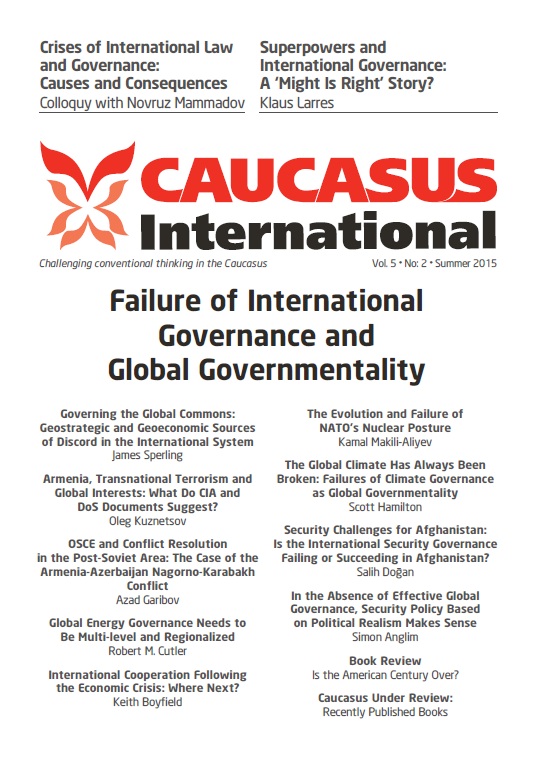Superpowers and International Governance: A ‘Might Is Right’ Story?
International governance has frequently been imposed by outright force, or more subtly by means of political, economic and military pressure. The modern world of superpowers has been no exception. In fact, their sheer overwhelming political and economic power and military might has rendered the temptation to enforce their will while ignoring or sidelining the views of other countries apparently irresistible. Nevertheless, examples from both the Cold War era and the post-Cold War world demonstrate that even superpowers cannot do as they wish. The structure of the international system as developed since 1945, along with the influence of democracy, a growing global acknowledgment of the importance of a culture of consensus and cooperation in international affairs imposes powerful constraints. This often, though not always, ensures that might is not always right. Increasingly, individual great powers do not get away with behaving like a bull in a china shop. This includes the United States (invasion of Iraq) and Russia (Crimea, Ukraine); both countries have faced significant negative consequences for their violations of international law and the conventions of global governance.
Latest news
- 03/17/2020 Call for Submission: “Non-Alignment Movement and Its Perspective in International Affairs”. Deadline: 1 July 2020 2623 views
Popular articles
- 02/24/2020 The Role of Irredentism in Russia’s Foreign Policy 2535 views
- 02/24/2020 Construction of sub-national identity vis-à-vis parent state: Gagauz case in Moldova 2216 views
- 02/24/2020 The Conflict in Ukraine - The Geopolitics of Separatism and Divergent Identities (Commentary) 2071 views
- 02/24/2020 The Role of the Soviet Past in Contemporary Georgia 2044 views





